IAEA needs to maintain independence, impartiality, avoid political moves: Iran nuclear chief
Iran’s nuclear chief has reiterated the country’s full and constant cooperation with the IAEA, urging the UN nuclear agency to remain independent and impartial and avoid politically-motivated decisions.
Head of the Atomic Energy Organization of Iran (AEOI) Mohammad Eslami made the remarks while addressing the 65th regular session of the General Conference of the International Atomic Energy Agency (IAEA) which kicked off in the Austrian capital of Vienna on Monday.
"Iran has always cooperated with the Agency, at the same time, it is necessary that the IAEA avoids playing politics and maintains its independence, impartiality and professionalism," Eslami said.
Regarding attacks on nuclear sites used for peaceful purposes, Eslami said as reiterated in several decisions and resolutions approved by the General Conference, an attack on a nuclear facility is "contrary to international law."
"All armed attacks against nuclear installations devoted to peaceful purposes should be explicitly prohibited," he added.
He slammed "inaction" of the United Nations and the IAEA in dealing with acts of terror against Iran’s peaceful nuclear facilities, which, he said, “encouraged aggressors to continue and even reject the most basic and fundamental principles of international law and the United Nations Charter.”
It is highly imperative that the agency pay heed to this issue immediately in order to "safeguard the nuclear installations against such actions or threats, but also the credibility of the Agency," Iran's nuclear chief said.
He emphasized that the IAEA is obliged to help member states develop their peaceful nuclear program without any discrimination and strengthen the area of technical cooperation with due consideration for the needs and priorities of the countries.
The UN nuclear agency should also assist the member countries in achieving the objectives of sustainable development through sharing knowledge, experience and transfer of technology and equipment "without any types of discrimination and political objectives."
Back in April, Iran’s Natanz nuclear facility was hit by an act of sabotage, which Iran called “nuclear terrorism” and a “war crime.” The attack, blamed on Israel, targeted the electricity distribution network of the enrichment facility and caused a blackout.
The Natanz facility, a uranium enrichment center located in the city of the same name in Iran’s central Isfahan Province, was also targeted in July 2020, in an incident that caused material damage to one of its inactive sheds in an open area.
While Israel has a policy of neither claiming nor denying responsibility for such attacks, Iran says Israeli footprints are all over the Natanz incidents.
Iran has also vowed to respond to the attacks at an appropriate time.
US must lift sanctions in practical, verifiable manner
Elsewhere in his address, Eslami said the United States has pursued unilateral policies and violated the 2015 nuclear agreement, officially known as the Joint Comprehensive Plan of Action, and UN Security Council Resolution 2231, which endorses the deal.
"The so-called maximum pressure policy was doomed to fail and the US administration should abandon its addiction to unilateral sanctions and respect international law,” the AEOI chief said.
He criticized the lack of commitment on the part of the three European signatories to the JCPOA -- Britain, France and Germany – and the European Union to their obligations as per the deal, which led to the adoption of a law by Iran’s Parliament two and a half years after the US withdrawal from the agreement and the expansion of its broad economic sanctions against Tehran.
"Now, it is time for the US to rectify its wrong policies and remove all sanctions in a practical, effective and verifiable manner," Eslami said.
As announced by Iran’s President Ebrahim Raeisi, Tehran seeks results-oriented negotiations that would lift the unjust pressures and sanctions against the Iranian people, he said.
Tehran has said time and again that its obligations are only relevant under the JCPOA, if other signatories do their share to get anti-Iran sanctions removed. The sanctions, which had been lifted by the JCPOA, were reimposed on Iran after the US administration, under former President Donald Trump, illegally withdrew from the accord in 2018.
Iran remained fully compliant with the JCPOA for an entire year, waiting for the co-signatories to fulfill their end of the bargain by offsetting the impacts of American bans on the Iranian economy.
But as the European parties failed to do so, the Islamic Republic moved in May 2019 to suspend its JCPOA commitments under Articles 26 and 36 of the deal covering Tehran’s legal rights.
In December 2020, the Iranian Parliament passed a law – dubbed the Strategic Action Plan to Counter Sanctions – that prompted the Iranian administration to restrict the IAEA’s inspections and accelerate the development of the country’s nuclear program beyond the limits set by the JCPOA.
Iran took five steps in scaling back its obligations, among them abandoning operational limitations on its nuclear industry, including with regard to the capacity and level of uranium enrichment.
All those measures were adopted after informing the IAEA beforehand, with the Agency's inspectors present on the ground in Iran.
Full, verifiable disarmament key to nukes threat
The Iranian nuclear chief further said "a full and verifiable disarmament" would be the main solution to the existing threats of atomic weapons, stressing the importance of fully implementing Article VI of the Non-Proliferation Treaty (NPT).
As the initiator of the idea of a Middle East region free of nuclear weapons since 1974, Iran expresses its serious concern about the Israeli regime's secret military nuclear program, he added.
In an address to the quarterly meeting of the IAEA Board of Governors on Wednesday, Kazem Gharibabdi, Iran’s ambassador to the Vienna-based international organizations, slammed the UN nuclear agency’s deliberate silence on Israel’s nuclear arsenals, which are replete with atomic bombs, saying the world has been turning a blind eye to the Tel Aviv regime’s nuclear work for more than five decades.
“The international community and the IAEA have been blind over the [Israeli] regime’s nuclear activities for over five decades, having no supervision over them,” Gharibabadi said.
Israel pursues an ambiguous nuclear policy as it neither officially confirms nor denies that it has nuclear weapons. However, the regime is believed to be in possession of hundreds of nuclear warheads.
Israel defies calls to join the NPT or put its nuclear program under IAEA surveillance.
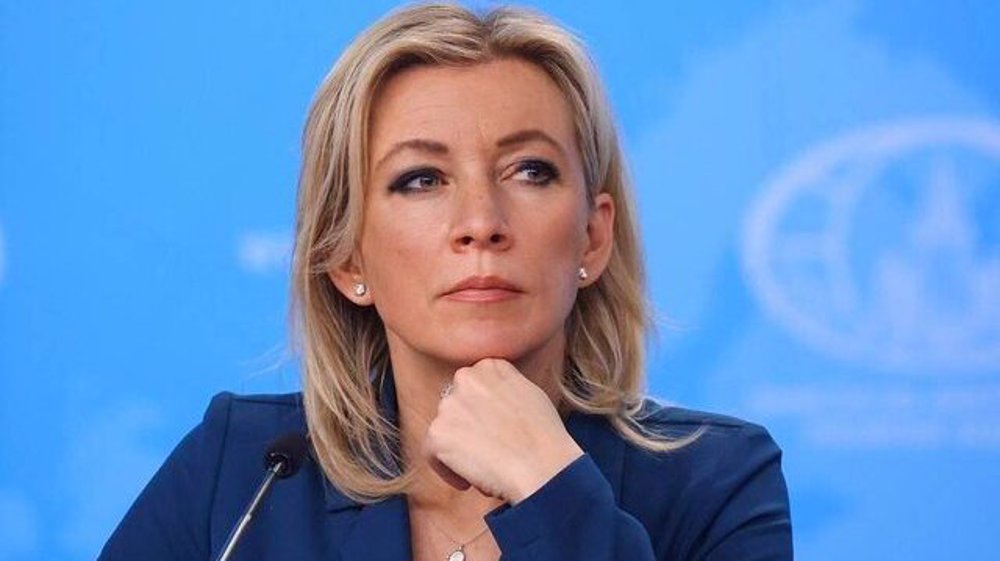
Russia: Unilateral US sanctions against Iran illegitimate, illegal
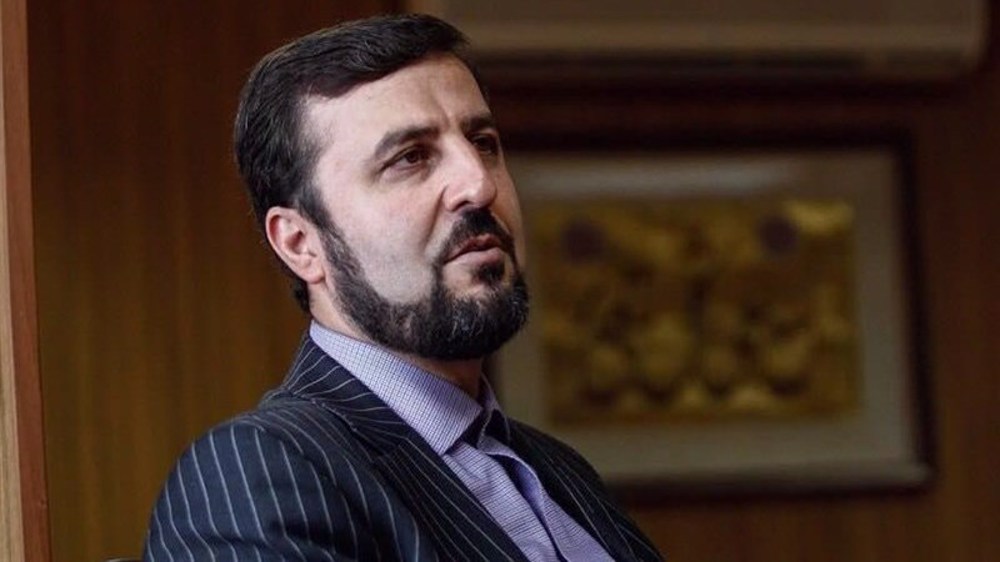
Senior official: Iran likely to hold meeting with European troika
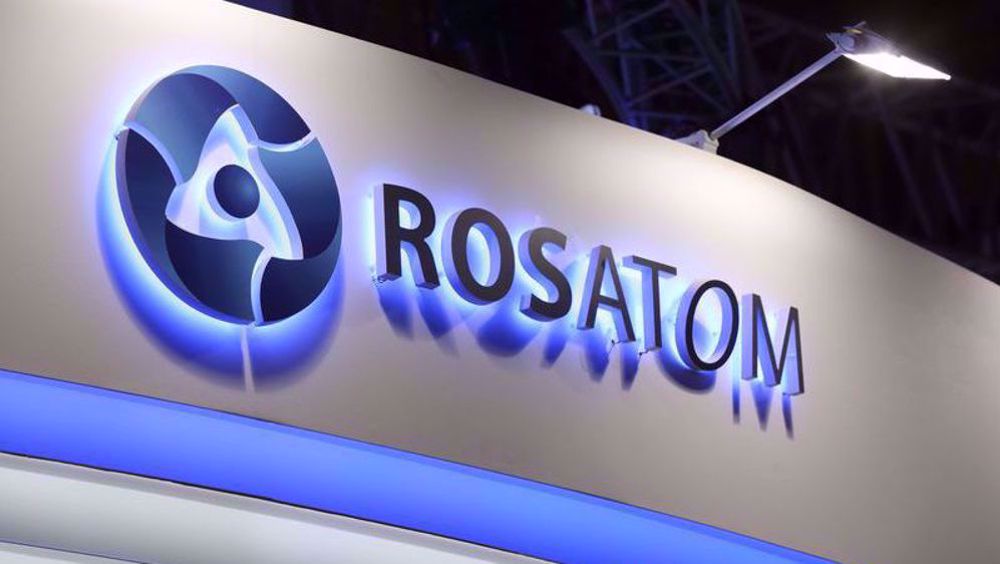
Russia’s Rosatom in ‘large-scale’ talks with Iran to build another power plant: CEO
Houthi: Yemen ready to attack Israel if Gaza truce breaks down
VIDEO | Lost classrooms, lost childhoods: Jenin’s children struggle for education
VIDEO | Palestinians ramain steadfast despite Israel’s onslaught
VIDEO | Press TV's news headlines
Iran ready to strengthen ties with UAE based on ‘mutual interests’: Deputy FM
VIDEO | A slap in the face of imperialism
Iran remains steadfast in its ‘principled positions,’ says Foreign Ministry
VIDEO | Holding on to hope: Gazans welcome Ramadan despite hardship


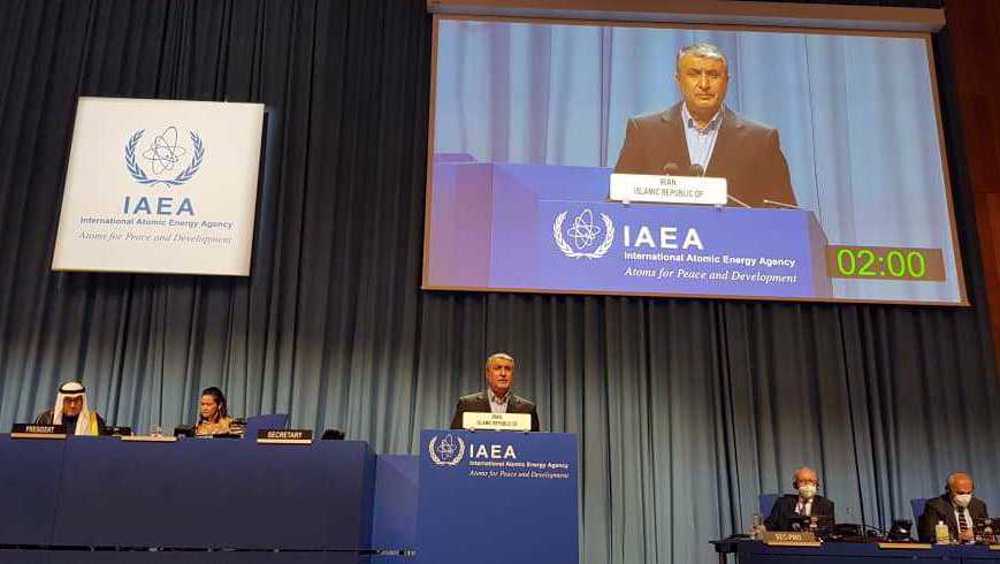
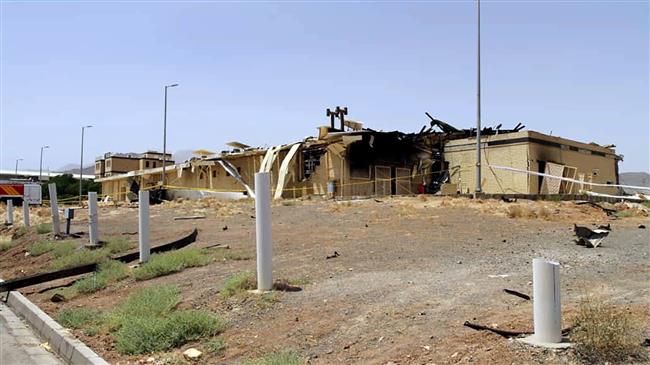
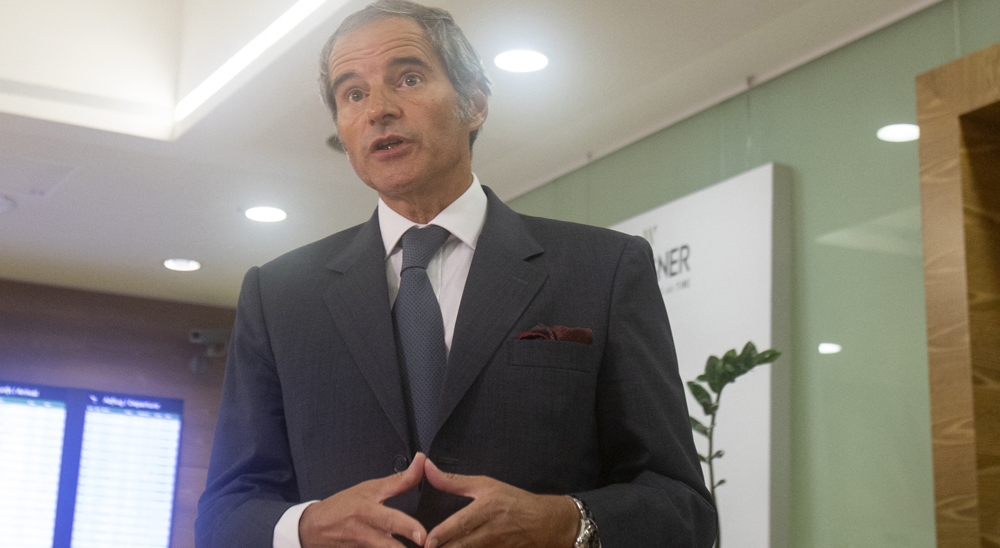
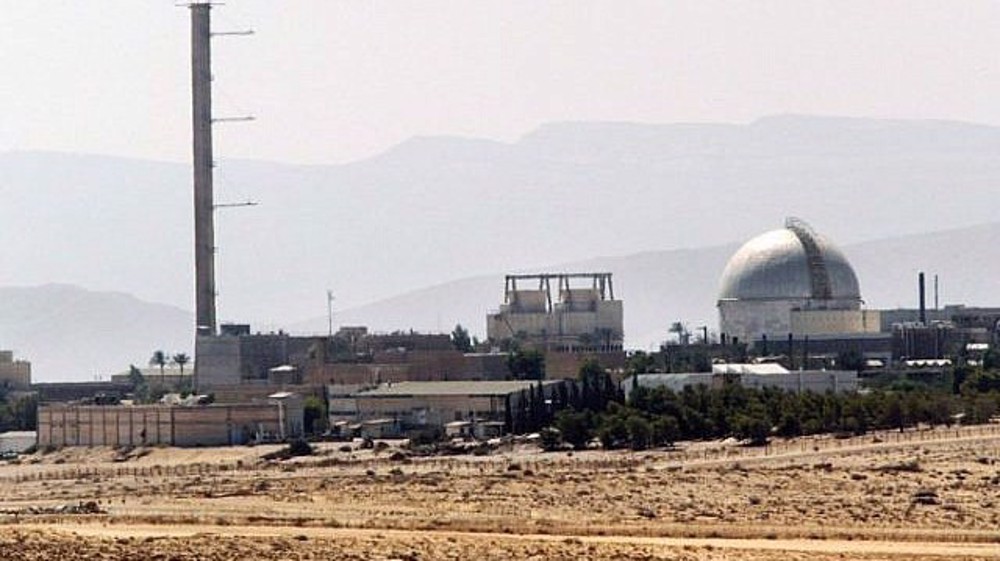




 This makes it easy to access the Press TV website
This makes it easy to access the Press TV website